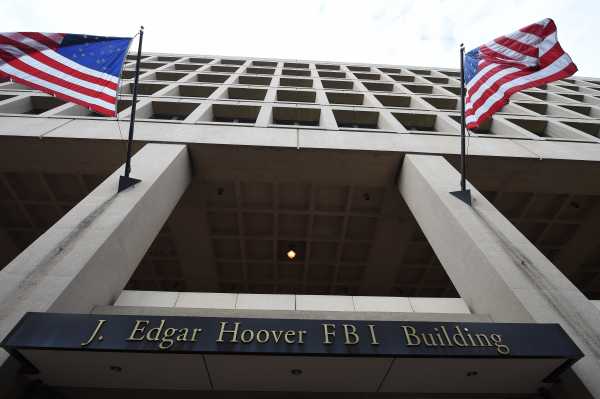
As America anxiously awaits the release of the so-called “Nunes memo” — a four-page document written by Rep. Devin Nunes (R-CA) alleging that the FBI fraudulently snooped on a Trump campaign adviser — it’s worth keeping in mind that there isn’t just one memo in play here.
There are actually three.
The first is the original Nunes memo. The second memo, written by Rep. Adam Schiff (D-CA), is a rebuttal to Nunes’s attacks on the FBI. The third memo is actually an edited version of Nunes’s original memo, which he sent to the Trump administration for review.
The reason there are three memos is because Nunes’s first memo was flawed — on this point, there’s consensus. The debate is over whether it was flawed fundamentally (Schiff’s position) or in minor ways that required very light edits (if you believe Nunes). Either way, the existence of three memos is seriously complicating the Republican campaign to #ReleaseTheMemo — an effort that, if successful, could have profound implications for special counsel Robert Mueller’s investigation into Trump’s Russia ties and the FBI’s independence more broadly.
Here’s why.
The first Nunes memo started all of this
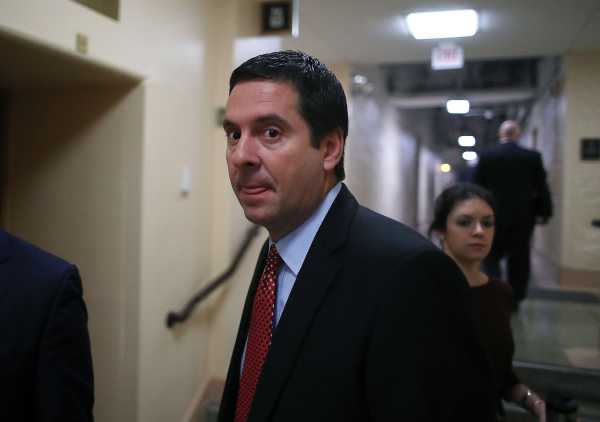

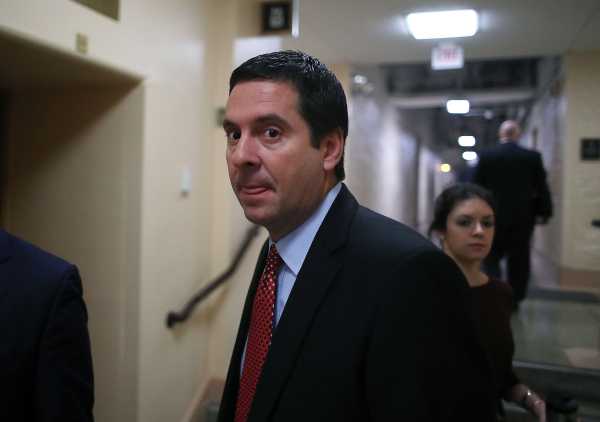
Most of what we know about the first Nunes memo, which has been circulated around the House of Representatives but remains classified, comes from press accounts of its contents. According to a New York Times report published on January 28, Nunes’s memo focuses on surveillance of Carter Page, a Trump campaign foreign policy adviser with business ties to Russia and open sympathies with the Kremlin’s foreign policy.
Page went to Moscow in July 2016 while he was serving on the Trump campaign, a move that raised eyebrows among the FBI agents investigating the Trump team’s ties to Russia. So the FBI and Department of Justice put together an application to a Foreign Intelligence Surveillance Act (FISA) court — a court that approves surveillance warrants pertaining to national security and foreign intelligence — to start watching Page. The court granted the application in the fall of 2016, giving the FBI the green light.
The memo reportedly alleges that this surveillance was not properly vetted by the court; specifically, that it relied on the now-infamous Steele dossier, the document prepared by former British spy Christopher Steele alleging the existence of a conspiracy between Donald Trump and the Russian government. The dossier, partially and indirectly funded by the Clinton campaign, is the one alleging, among other things, the existence of the so-called “pee tape.”
“The memo’s primary contention,” the Times writes, “is that FBI and Justice Department officials failed to adequately explain to an intelligence court judge in initially seeking a warrant for surveillance of Mr. Page that they were relying in part on research by [Steele].”
What’s more, the Nunes memo reportedly says that Deputy Attorney General Rod Rosenstein signed off on an application to renew the surveillance of Page in the spring of 2017. This would imply that Rosenstein either overlooked the FBI and DOJ’s reliance on the Steele dossier, which Republicans see as a partisan hack job, or acquiesced to it.
Blaming Rosenstein is a big deal, as he’s currently in charge of supervising Mueller’s Russia probe — and President Trump has reportedly mused in private about firing him.
Experts on the FBI and surveillance policy say the Nunes memo’s arguments, at least as summarized in press accounts, are extremely dodgy. The sheer number of people across the Department of Justice who would need to be either deeply incompetent or involved in a conspiracy, they say, makes its assertions exceptionally hard to believe.
Nonetheless, Republicans have been pushing for its release, arguing that there really is a scandal this big and the public deserves to know about it. On Monday night, the House Permanent Select Committee on Intelligence (HPSCI) — which Nunes chairs — voted for the memo’s public release. Every Republican on the committee voted in favor of it; every Democrat voted against it.
To hold the vote, Nunes invoked an extremely obscure part of the House Standing Rules, which govern the legislative body’s operation — specifically, Clause 11 of Rule X. Clause 11 allows HPSCI to disclose classified information, like the Nunes memo, if “the public interest would be served by such
Clause 11 has never been invoked before. In theory, Monday’s vote should set up a five-day maximum deadline for the memo’s release. The only thing that can block it is a note from the president saying that the memo’s release would damage national security. If Trump did send such a notification, it would require a vote from the entire House, not just the HPSCI, to overrule him.
But it’s hard to imagine Trump blocking the memo’s release, given his long-running allegations of FBI bias against him. The New York Times suggests that Trump plans to give HPSCI the go-ahead to release the memo on Friday, but nothing has been officially confirmed.
Democrats wrote a counter-memo — but it’s unlikely to see the light of day
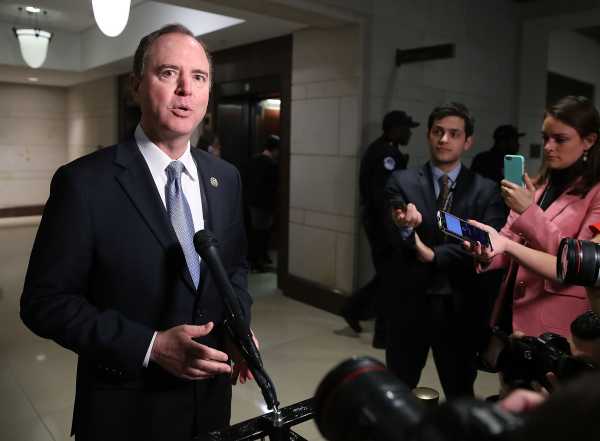

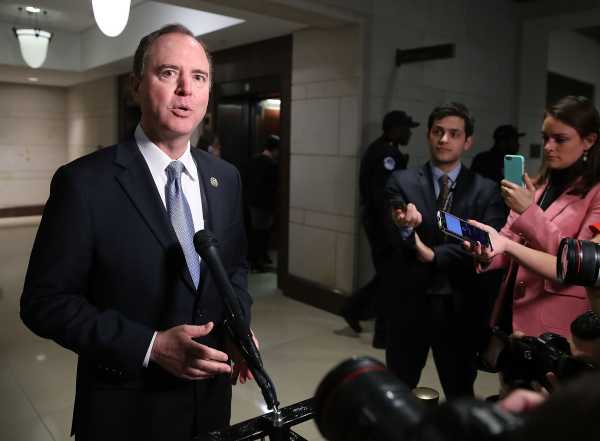
Rep. Schiff, the ranking Democratic member on HPSCI, has been the biggest critic of the Nunes memo. He argued in a Monday press conference that the document is an attempt to “politicize the intelligence process” in service of a “deeply flawed person in the Oval Office.”
Schiff has compiled his objections to the Nunes memo into another classified document — let’s call it the Schiff memo. The 10-page note, according to Schiff and other Democrats, is a detailed rebuttal to the claims in Nunes’s memo. He reportedly defends the FBI’s FISA application on Page and says that there was no deception surrounding the Steele dossier. It also, per CNN, attacks Nunes’s political motivations — arguing that the entire thing is a sham designed to aid Trump’s attack on the FBI.
The Republicans on House Intelligence, so far, have decided not to release Schiff’s memo. On Monday night, Schiff submitted to release his memo alongside the Nunes memo under the Clause 11 procedures. He was defeated in another party-line vote.
A Schiff spokesperson told me they still hope to release their memo. To address Republican concerns that it may compromise intelligence sources, Schiff “will send his memo for review by appropriate agencies,” the spokesperson said.
But as things stand, that won’t happen right now. HPSCI Republicans believe that the Nunes memo, which the FBI has publicly said leaves out vital contextual information, is something the public needs to see — while the Democratic memo defending the bureau with additional context is not.
This isn’t so much about allowing the public to make up its mind, then, as it is about Republicans advancing a very specific allegation of anti-Trump bias at the FBI — one that the president has been pushing publicly for months.
Why there’s a third memo
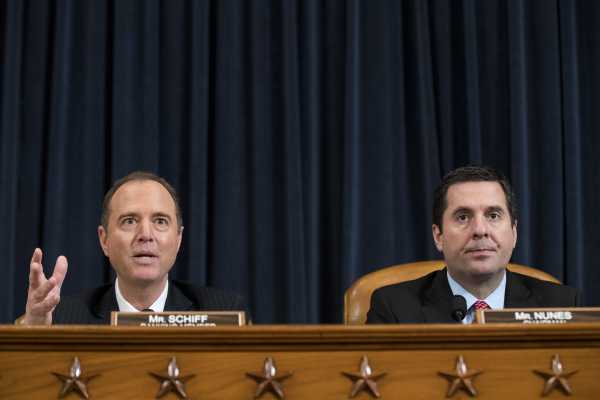

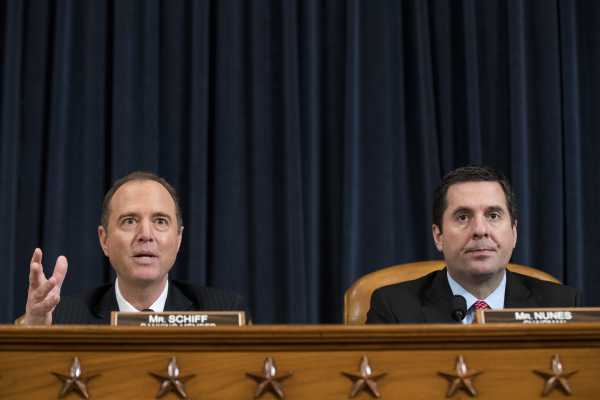
The third memo complicates all of this substantially — and may explain why the first memo has yet to be released.
Late on Wednesday night, Schiff sent out a tweet alleging that Nunes had “secretly altered” his memo before sending it to the White House for vetting. The changes, per Schiff, were “substantive” and “material” — meaning that it was, effectively, not the same memo that HPSCI voted to release on Monday night. That would make it illegal to release the altered memo, Schiff argued, without a new Clause 11 vote.
It’s not clear how valid the legal reasoning is here — again, Clause 11 has never been used before. But setting that aside, it’s not clear what the changes actually were. Schiff’s tweet didn’t lay out their specific nature, other than to say they “do not correct the profound distortions and inaccuracies” in the original document.
Instead, we’ve had a war of anonymous sources in the press. One Republican source told the Washington Post that the only changes were “two edits requested by the FBI and by the minority” and some other minor things, like grammar corrections. A Democratic source contested this, telling the Post that the changes were an attempt to “water down some of the majority’s assertions” and that the Republicans needed to “restart the process in a transparent manner.”
So it’s possible the edits weren’t very important. It’s possible they correct major errors. It’s also possible they were direct responses to the Schiff rebuttal memo designed to address its criticisms.
We still don’t know how this memo business is going to be resolved. But if Trump does, in fact, clear the way for the memo to be released on Friday, it raises a clear question: Is he approving the original Nunes memo or the edited one that Nunes transferred to him? And if so, are there major differences, as Schiff alleges?
The most unclear story in Washington just got a little more confusing.
Sourse: vox.com






